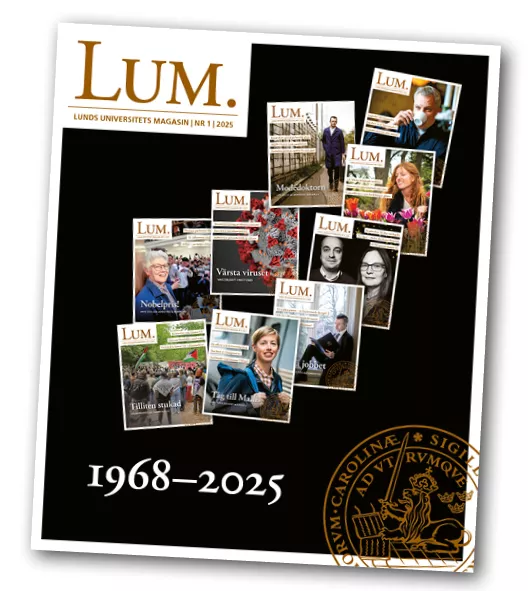Emma Kritzberg, professor at the Department of Biology, stepped on the train at Malmö Central Station at 23:25 on 5 March. After four changes, an unwelcome train strike in France that meant 12 hours on a bus, and the last stretch on a ferry, she landed in Mallorca on 8 March at 06:30 in the morning.
Three days later, she made the same journey but in the opposite direction. This time, minus the French train strike.
Why did you take the train?
“I decided in 2017 never to fly again. Since then, it’s been a choice between train or not going. Unfortunately, ferries emit almost as much as airplanes per passenger per kilometre, but at least the distance was radically shorter this way,” says Emma Kritzberg.
Even though the trip took 48 hours longer in each direction compared to flying, it did not mean more wasted time, she explains. The actual flight is one thing, but most people do not take into consideration the time spent getting to the airport, through airport security, and then all the waiting.
“I can’t work in those circumstances. I like travelling by train, it helps me think and I can work well, even if the effective time spent travelling is much longer.”
Emma Kritzberg explains that her work is mostly spent on the computer and that the Wi-Fi connection was good for many hours on the train to Spain.
“I also printed out some documents in advance, mostly because I find creative work easier with a pen and paper than on a small screen.”
Changing trains was not a problem either.
“It was nice to change along the way, actually. The stations are in city centres and I got to take a walk, eat and drink some nice things in Hamburg, Karlsruhe, Paris and Barcelona. It was wonderful! The night train timetable didn’t match the ferries particularly well, which meant that I got to spend quite a bit of time in Barcelona. A table in the sun at a café is an excellent office.”
Emma Kritzberg does not think there are any explicit downsides to taking the train abroad, at least not for those who can work effectively as they travel. The only negative was perhaps booking tickets for the portions abroad. This was complicated. The University’s current travel agency contract involves a separate booking fee for each ticket. To Mallorca and back, that meant over SEK 2,000 in booking fees alone.
“Unfortunately, the booking fees become an incentive for members of staff to choose air travel over the train if they are going far. I booked my trip through Centralens travel agency in Kalmar. They were excellent and a lot cheaper. Next time I will book myself as I now know the best route.”
Emma Kritzberg did not take part in the meeting digitally, as this time there was a requirement to be in situ. There is an ongoing discussion about what can be done to reduce emissions from travel in conjunction with future meetings.
“We are going to suggest that the climate impact be calculated for every conference. Once we have the data, we can think about what measures are needed. Perhaps hosting the meetings in a central location in relation to where the participants live, encouraging travel by train and maybe having more meetings online,” she says.
Should more people do as you have and take the train?
“Of course I hope that more people will question the unreflecting way we fly and make choices that chime with a green transition. Politicians and employers need to provide better conditions to make this transition, but social norms are also important,” Emma Kritzberg says.








